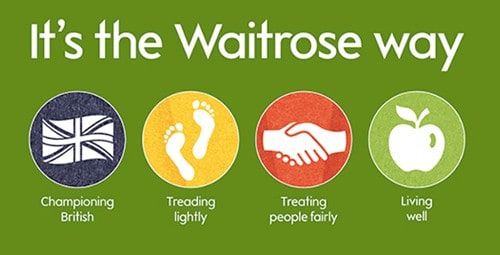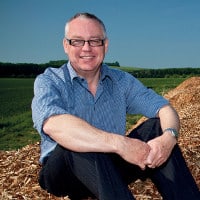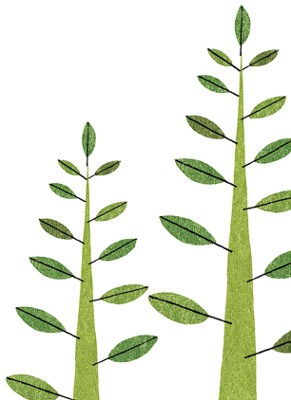Greenhouse Pioneer: Quentin Clark – Head of Sustainability and Ethical Sourcing, Waitrose

We talk toQuentin Clark, Head of Sustainability and Ethical Sourcing at Waitrose, and the man responsible for the supermarket’s policy onsustainable fishing, chicken welfare and total conversion to free range eggs – as well as implementing The Waitrose Way. Quentin Clark has been Head of Sustainability and Ethical Sourcing at Waitrose since 2010, but even before landing this role he was helping the retailer take huge sustainable strides.He led the development of the Waitrose policy on sustainable fishing, chicken welfare and total conversion to free range eggs before moving into his current role.Since then he has led the agenda for creating ‘The Waitrose Way’, helping to win a Big Tick Award in the Sustainable Supply Chain category at the Responsible Business Awards 2013.
Quentin Clark has been Head of Sustainability and Ethical Sourcing at Waitrose since 2010, but even before landing this role he was helping the retailer take huge sustainable strides.He led the development of the Waitrose policy on sustainable fishing, chicken welfare and total conversion to free range eggs before moving into his current role.Since then he has led the agenda for creating ‘The Waitrose Way’, helping to win a Big Tick Award in the Sustainable Supply Chain category at the Responsible Business Awards 2013.
Tell us, in 20 words or fewer, about your work at Waitrose – what’s your mission?
Our mission is to provide great quality food that you can trust has been produced responsibly.
What motivates you?
A conviction that we can do things better, taking the opportunity to make an actual difference and seeing others do that through the actions we can take now.
What is your greatest achievement to date?
Creating ‘The Waitrose Way‘ which sets out the commitments of our business organised into four pillars: 1) Treading Lightly (responsible sourcing and our environmental work); 2) Treating People Fairly (our community and people related work); 3) Championing British (the sustainability of British agriculture, animal welfare, seasonal, local and regional food); and 4) Living Well (a healthy diet and lifestyle).Specifically, I am most proud of the work that has led to our longstanding position on responsible fishing.
What are the challenges you face?
People often expect me to say ‘the conflict between commercial and responsible or ethical behavior’ but this is not the case. Reducing energy, saving fuel, cutting carbon – all of these save money as well. Our policies on animal welfare or sustainable fishing also deliver quality benefits which are appreciated by our customers as real value.The challenge lies more in the range and scope of our work and in communication. My biggest challenge is how do you communicate with millions of customers every week in a way that is interesting and helpful to the choices they make?
What are you working on that’s getting you fired up and excited?
As a business we use 100% renewable electricity which is one of the biggest things you can do to help the environmental agenda. Using this as an example, it is exciting to help customers make that conversion but also seeing the opportunity for our farmers to generate power and supply that to us too. We are taking that further through our work with electric vehicles which is one of the most exciting areas of development.
Where do you want to take Waitrose next?
The principles of The Waitrose Way are central to our approach to business and we work together with our suppliers applying them. We are, after all, what we sell and how we sell it.We want our customers to be part of that too. Many people need a solution for their shopping that is doing what they would expect on their behalf. That is our aim but we hope we are also providing some inspiration that people can take into their own lives.Our work on packaging, healthier food and dietary advice are just a few of the areas where we can help people recycle better, eat better and perhaps waste less (saving money too!). The future for us is joining it all up from field to fork.
What can we, as individuals, do to make a difference?
Convert to a renewable power supplier. Convert to a renewable power supplier : and did I say convert to a renewable power supplier?But it is also key to think about how the food choices we make today will affect the future. Choosing the more sustainable option will be the cheapest in the long run and is often the best quality now.As a general principle, consider how you live and consider what you can do that allows you to carry on doing that but with a lower impact. Carry on using your tumble drier, but use renewable electricity. Eat more fish (it’s good for you) but choose responsibly sourced fish. Carry on eating great food but use a list when you are shopping so that you only buy what you need to reduce waste and, of course, choose responsible British food that supports our own rural economies and plays such a huge part in giving us our beautiful countryside and fostering biodiversity.Who knows, you might even buy an electric vehicle.
If you were Prime Minister for a day, what would be the first thing you’d do?
 Set a national target for 100% UK produced renewable energy. That should be our ‘landing a man on the moon’ national ambition.In my view the provision of cheap and reliable power that is independent of external influences (like the price or availability of oil) and that does not contribute to additional CO2 or waste disposal problems is so much at the root of everything it has to be our number one priority.
Set a national target for 100% UK produced renewable energy. That should be our ‘landing a man on the moon’ national ambition.In my view the provision of cheap and reliable power that is independent of external influences (like the price or availability of oil) and that does not contribute to additional CO2 or waste disposal problems is so much at the root of everything it has to be our number one priority.
What’s the coolest project or product you’ve come across, and inspired you?
I like circularity. There is something very satisfying about using all of our food waste (after donation) to generate biogas through anaerobic digestion and then using that gas to power some of our lorries to deliver our food.Outside of our business my nomination would go to the Electric Highway being implemented by Ecotricity which is creating the infrastructure needed for the widespread adoption of electric vehicles using 100% wind-generated electricity.
Can you recommend a life- or game-changing book for our readers?
The Last Hours of Ancient Sunlight by Thom Hartman.
What do you listen to when you’re cooking dinner?
Firstly, I do cook dinner from time to time. Generally, Radio 4 because I am in complete awe of the skill of the interviewers and the depth of understanding needed to do this. But, more often than not I am on Twitter, engaging in debate or comment from around the world.
What’s the best advice you’ve ever been given?
Be yourself, everyone else is taken. Easy to say but hard to do!
Can you leave us with who’d be your Pioneer?
It is too hard to choose and I am sure there are people out there quietly changing the world under all of our radars, but you can be sure my ranking would not be about what they have said. It is about what they have done.


